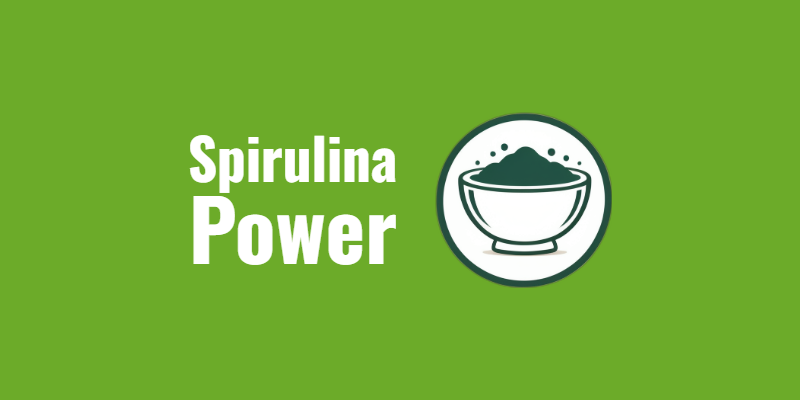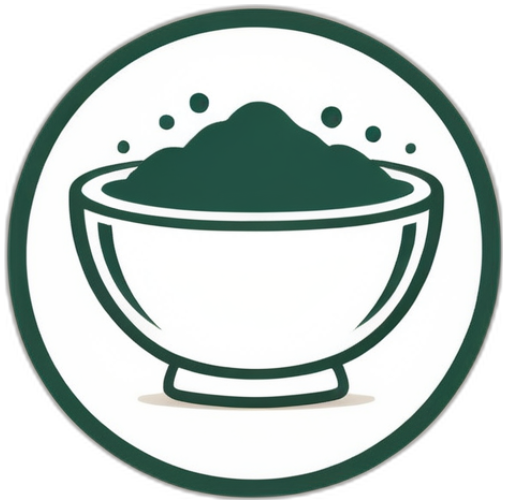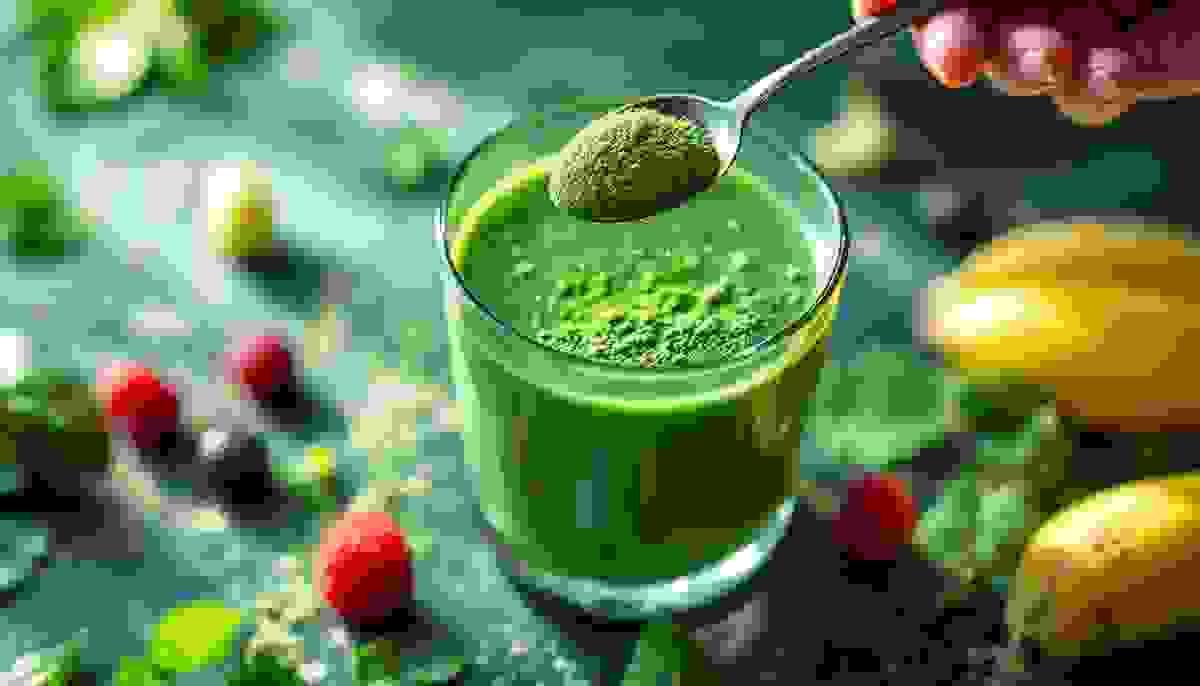
- …

- …

A Superfood Powerhouse, Spirulina is widely regarded as one of the most nutrient-dense foods available today.
This blue-green algae is packed with essential nutrients that make it a versatile and valuable addition to any diet.

Essential Fatty Acids
Though low in fat overall, Spirulina contains essential fatty acids that are vital for brain function, inflammation control, and cell membrane integrity. The most prominent fatty acids in Spirulina include:
Gamma-Linolenic Acid (GLA): An omega-6 fatty acid, GLA is known for its anti-inflammatory properties and is particularly beneficial for skin health, heart health, and managing inflammatory conditions like arthritis.
Omega-3 Fatty Acids: Spirulina contains small amounts of alpha-linolenic acid (ALA), which is a precursor to DHA and EPA, essential for brain and heart health.
While the fat content in Spirulina is minimal (around 6-8% of its weight), it’s the presence of these healthy fatty acids that contributes to its overall health benefits, particularly in reducing inflammation.

Antioxidants
Spirulina’s antioxidant capacity is remarkable due to its unique compounds that neutralize free radicals and reduce oxidative stress.
Phycocyanin: Spirulina’s Signature Antioxidant
This blue pigment not only gives Spirulina its color but also fights free radicals, reduces inflammation, and protects cells from damage. It promotes both antioxidant activity and inflammation reduction.
Beta-Carotene
Rich in beta-carotene, a precursor to Vitamin A, Spirulina helps protect the eyes and skin from oxidative damage and supports immune function.
Superoxide Dismutase (SOD)
Spirulina contains SOD, an enzyme that breaks down harmful oxygen molecules, preventing tissue damage and serving as a key defense against oxidative stress.
Zeaxanthin
Spirulina also provides zeaxanthin, an antioxidant that supports eye health by filtering harmful blue light and protecting against macular degeneration.

Low Calories & Carbohydrates
Spirulina stands out for its high nutritional density and low calorie and carbohydrate content. A 10-gram serving contains only about 20 calories, making it a great option for those looking to boost their diet without adding extra calories.
In addition to being low in calories, Spirulina has fewer than 2 grams of carbohydrates per serving, making it ideal for people on low-carb or ketogenic diets who want to increase nutrient intake without compromising their goals.
Adding Spirulina to meals or smoothies allows individuals to easily increase their intake of vitamins, minerals, and proteins, while keeping calories and carbs in check. This makes it an excellent supplement for weight management, improved nutrition, or simply adding a nutrient boost to your daily routine without added sugars or calories.

Polysaccharides + Compounds
Beyond vitamins and minerals, Spirulina contains various bioactive compounds that contribute to its health benefits.
Polysaccharides
Spirulina contains certain polysaccharides that are thought to have immune-boosting properties. These complex carbohydrates help activate macrophages and stimulate the immune system’s response to pathogens.
Chlorophyll
Spirulina is a rich source of chlorophyll, the green pigment involved in photosynthesis. Chlorophyll not only contributes to detoxification by binding to and eliminating toxins from the body, but it also has potential antioxidant and anti-inflammatory effects.

Address
Palli Wasalpaduwa
Koththanthivu 61252
Sri Lanka
-----------------------------------
Marienburger Strasse 16
56112 Lahnstein
Germany
Telephone
+94 74 079 7047 Sri Lanka (GMT+5:30)
------------------------------------
+49 176 471 77751 Germany (CET)
info@
Spirulina Power © 2024 by Lumenoeva (Pvt) Limited





